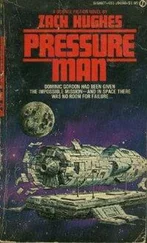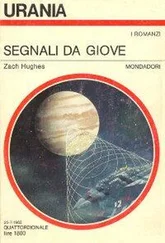Zach Hughes - Tiger in the Stars
Здесь есть возможность читать онлайн «Zach Hughes - Tiger in the Stars» весь текст электронной книги совершенно бесплатно (целиком полную версию без сокращений). В некоторых случаях можно слушать аудио, скачать через торрент в формате fb2 и присутствует краткое содержание. Жанр: Фэнтези, на английском языке. Описание произведения, (предисловие) а так же отзывы посетителей доступны на портале библиотеки ЛибКат.
- Название:Tiger in the Stars
- Автор:
- Жанр:
- Год:неизвестен
- ISBN:нет данных
- Рейтинг книги:3 / 5. Голосов: 1
-
Избранное:Добавить в избранное
- Отзывы:
-
Ваша оценка:
- 60
- 1
- 2
- 3
- 4
- 5
Tiger in the Stars: краткое содержание, описание и аннотация
Предлагаем к чтению аннотацию, описание, краткое содержание или предисловие (зависит от того, что написал сам автор книги «Tiger in the Stars»). Если вы не нашли необходимую информацию о книге — напишите в комментариях, мы постараемся отыскать её.
Tiger in the Stars — читать онлайн бесплатно полную книгу (весь текст) целиком
Ниже представлен текст книги, разбитый по страницам. Система сохранения места последней прочитанной страницы, позволяет с удобством читать онлайн бесплатно книгу «Tiger in the Stars», без необходимости каждый раз заново искать на чём Вы остановились. Поставьте закладку, и сможете в любой момент перейти на страницу, на которой закончили чтение.
Интервал:
Закладка:
not even guess cluttered floor areas. Everything was in disarray, but it was more than mere clutter. He checked for power drains and found a few of the devices to be functioning, or at least they were using power. After some fruitless wandering and retracing of his steps upon confronting dead-end corridors, he found the room containing the communications device, much like the shipboard bank, but larger and more powerful. «Send another blip from the bank,» he radioed up to Heath. As part of the communication device, he heard the message come in and be instantly relayed. He was noting the direction when Hara interrupted. «John, a signal just came in.» He had rigged a visual detector. The receiving circuits of the shipboard communicator were left open constantly. He directed the shipboard communicator to send down the message. It arrived in a very brief blip of energy and was stored on the tapes of the landside machine. With great anticipation, he slowed it, replayed it. It was a meaningless rumble of noise. Nothing about it resembled the form of outgoing messages. Puzzled, he relayed it at different speeds, producing not sounds but electronic impulses. Had the impulses been orderly, the outgoing messages, the computer could have read them, extracted information. As a part of the computer, Plank could have read them. But the impulses were not orderly. They were a confusing random nothingness. Noise. Electronic noise. «I guess,» he said for the benefit of Hara and Heath, «We don't speak the same language.» He made brief exploratory excursions on the planet. He found more of the same incomprehensible mechanical jumble. Two things he recognized.
One was a waterfall cascading out of a tall tower into a lake. The other was unquestionably an acceleration chamber for atomic particles. Of all the forms it was the most recognizable. Long, heavily shielded, it stretched a vast distance across a flat plain. He was recording on visual. He was taking samples. The metals were much like the metals aboard the two ships, the tougher alloy used for the ship's hulls being the main construction material of the towers and buildings. Once he tried to enter one of the electronic devices, this one occupying a building roughly the size of an Earth football stadium. For a while, until he extricated himself, he feared for his sanity. The circuitry had no rhyme or reason. It began nowhere and led nowhere and performed no function he could imagine. Again he was struck by the tinker-toy image, this one an electronic tinker-toy assembled by a talented idiot. He emerged a bit frayed at the edges and, having had enough, boarded the mobile form and rejoined the others on the Pride. There, untiring, he busied himself with the one signal that had come into the receiver. Hours later, after Hara and Heath had slept, he told them, «I think it must have been random noise.» «What now?» Hara asked. «We start sending messages to the relay station down below and follow the relays.» Heath was looking at a visual chart of the incoming message. «Plank,» he said, «you want to try something purely on a guess?» «I'm open to suggestions,» Plank said. «How about running this thing through a speaker as just plain old sound.» «Why not?» Plank asked, although he considered the idea rather inane. He rigged the system, translated the electronic impulses into sound waves. When he activated the tape there was a long-drawn-out rumble on the speakers. It was meaningless. Plank shrugged. «So much for man's first communication from an intelligent alien,» he said. «Wait,» Hara said. «Play it again.» Again the long-drawn-out rumble. «Speed it up,» Hara said. The sound was unmistakable. Man's first communication from an intelligent alien was a huge, satisfied burp. CHAPTER TWELVE «Join up with Plank and see the galaxy,» Hara said, with a lightness she did not feel. Once again they were star-roving. This time the process was somewhat more complicated. First, it was necessary to allow the communications
bank to send a signal to the relay station. Then it was a game of intelligent guess and chance to put the Pride and her dark companion ship in the direct path of the narrow beam from the relay station on the core planet. Both ships were used because the equipment needed was aboard the dark globe, and the Pride offered comfort to Hara and Heath. Operations were no problem. Plank could extend his control over both ships with no difficulty. The problem was in calculating each new blink. Although the beamed message generally was in a straight line, it was bent by the huge fields of stars and often, following a new message. Plank missed the beam entirely and had to search for it, sometimes having to return to the last known point. As days went by, it became evident that the new path was leading back in the general direction of Earth, and Plank began to fear that they were already there in the solar system. However, the path began to diverge, aiming toward a point in the Orion Arm more toward galactic center than Earth's sun. There had been no further communication incoming, and Plank began to think that the one reception was a fluke, a bit of space noise or interference. Since he was capable of being in more than one place at one time, and since the more he worked his brain the more it seemed to be able to handle, he was spending some of the time working with Heath and Hara to install manual controls on the Pride. Although Plank saw no great advantage, it gave the other two something to do and made them feel like more than mere passengers. Parts were cannibalized from the dark ship and from redundant systems aboard the Pride. When the makeshift manuals were in place. Plank acted as overseer as Heath directed the Pride into a blink. The new systems worked. Installing the manuals had served another good purpose. Heath, in spite of his abrasive personality, was a good drive engineer. He was now familiar with the complexities of the Pride to a degree second only to the more intimate insights of Plank himself. Back on Earth, Heath would be able to construct duplicate generators. Actually, the drive aboard the Pride was basically a blink generator, with some delicate refinements. Most of the advances were represented by the minute circuitry made possible by the atomic flow technique. Neither Plank nor Heath had command of that. It seemed to be automatic in the repair sequences, and the manner of its accomplishment was a mystery. However, the lack of the ability to flow the atomic material was not a severe handicap. The only sacrifice in building a generator by Earth techniques would be in size, and since power was unlimited with a blink generator in use, size was not the paramount consideration. Heath was now convinced that the blink drive had worked all along. He had evidence. He had seen it work with his own eyes and he'd recorded it on the instruments of the shuttle ship. The drive had worked, sending the ship out and bringing it back, and only alien interference had prevented man from developing a drive that would have opened the galaxy to him. There was much speculation as the two ships blinked out toward the Orion Arm, and there were a few tentative conclusions. One, there seemed to be a relatively small number of them. During Plank's own travels before he'd found his way back to the solar system by tracking the signals of Heath's blinks, he had minutely examined a sizable portion of the Orion Arm. Then, while following the signal beam to the core of the galaxy, they had covered another considerable area. They were now in a part of space that was new to them, and after blinking thousands of light-years, they had still had no encounter with them. Of course, the galaxy was an enormous place and the likelihood of a chance encounter was small, even if the aliens numbered in the billions
and were flying all over space. Still, it seemed likely that they would be few in number. Otherwise, if a swarming civilization had been conducting a search for man's home, they would have found it. Plank, himself, would have eventually discovered the solar system merely by systematically covering every star in the arm as he worked his way outward. It might have taken him 1,000 years; but a civilization that could produce the technology represented by the two ships, the planet of the empty tinker-toys and the medical techniques that allowed Plank's brain to live indefinitely as the guiding force of a starship would have been around for a long time. Perhaps, Hara suggested, they were not vitally interested in finding man, but merely in checking him now and then by lifting some of his ships. The idea of being checked on by alien intelligence was not new. But it was no more welcome to Plank than it had been to intelligent people in the days of flying saucers, when it was widely believed that alien spaceships made regular check flights over the Earth and even went so far as to pick up humans for examination. «I don't think there's anything systematic about it,» Plank said. «There's a certain randomness about the entire thing. We've studied the time intervals between ship disappearances. There's no pattern. We're quite sure now that the ships are discovered by reading the tiny disturbances in the continuum. We know the blink generator sends a signal ahead of itself and that such a signal can be read from vast distances. It stands to reason that the hydro-powered ships also made some sort of disturbance when, at turnaround, they built power suddenly to decelerate. The fact that all of the blink test vehicles disappeared shows that they send a much stronger signal, while the signal sent by the hydro ships must be weak and erratic, otherwise there might have been a 100 percent disappearance of the conventional ships, just as there was in the blink ships.» «What worries me is that we send such a signal each time we blink,» Hara said. «That's another reason why I feel there is a certain unexplained randomness about this whole thing,» Plank said. «There's almost an indifference on their part. Certainly, from almost anywhere in the galaxy, they can read our blinks. They know where we've been, and they probably can figure out where we're going. Yet they make no contact.» «Perhaps we're not really important enough to demand much of their time,» Heath said. «It's scary,» Hara said. «But you know, there are nuts on Earth who could make a new religion of this. They'd build blink ships and go off inviting them to seize the ship, praying and singing all the while, waiting to be taken by these godlike creatures with such fantastic powers to a better place.» «It would be nice to believe that,» Plank said. «There's such a casual disregard of the human individuals involved. Take Webb. He just vanished. Take my case. I wasn't asked if I wanted to be disembodied. I wasn't asked if I wanted to live, perhaps for thousands of years, without the niceties of human existence.» He was in his mobile form. It seemed to make the other two feel more comfortable. He looked at Hara. It was not exactly what he was thinking when he said, «No one asked me if I wanted to exist for a long period of time without even being able to eat a steak.» «To pursue Hara's thought, although I don't think any of us really believe it, perhaps they saved your life,» Heath said. «Perhaps they were doing a nice thing for you by giving you a form of life after your body was seriously harmed or destroyed.» «If so,» Plank said, «then they were the agent of my body's harm. They were the ones who seized my ship.» «Do you think there could be dozens, hundreds of ships like yours, with the brains of space people encased?» Hara asked. «The list of the missing numbers in the hundreds,» Heath said. «It's possible,» said Plank. «What we're trying to do,» Hara went on, «is understand the thinking of alien beings. It's rather futile to wonder what someone else is thinking, especially when that someone may be very, very different.» «Just how different is illustrated by that tinker-toy planet back there,» Plank said. «We know from it, and from the ships, that nothing is done with hands. It's all done mentally. In my case, I actually flow into a
Читать дальшеИнтервал:
Закладка:
Похожие книги на «Tiger in the Stars»
Представляем Вашему вниманию похожие книги на «Tiger in the Stars» списком для выбора. Мы отобрали схожую по названию и смыслу литературу в надежде предоставить читателям больше вариантов отыскать новые, интересные, ещё непрочитанные произведения.
Обсуждение, отзывы о книге «Tiger in the Stars» и просто собственные мнения читателей. Оставьте ваши комментарии, напишите, что Вы думаете о произведении, его смысле или главных героях. Укажите что конкретно понравилось, а что нет, и почему Вы так считаете.




